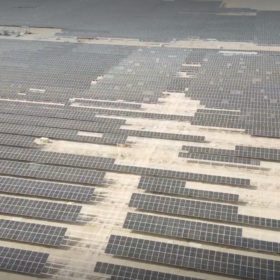Something remarkable is happening in the Indian power market that could revolutionize the way electricity is procured in the country. It could also signal the realization of “One Nation, One Grid, One Price” ambition, promising uniform pricing and facilitation of efficiency and renewable energy integration.
We are referring to the recent market-based economic dispatch (MBED) draft regulations, which propose a reengineering of the day-ahead scheduling and operation of the electricity market towards enabling a national merit order and a countrywide balancing area.
MBED aims to establish a uniform pricing framework that prioritizes the least cost and most efficient generators while backing down more expensive ones, thereby creating a national merit order. Unlike the current framework, where distribution companies (discoms) submit individual schedules from their portfolio of contracts to meet the expected load, under MBED all generators and discoms will submit their offers and bids on the power exchange on a day-ahead basis. Finally, a single market clearing price will be discovered for each unit of time of the upcoming day across the country.
Promises for Discoms and Gencos
This change allows for downward pressure on current power procurement costs, as nationally pooled prices are expected to be lower given the larger volume of generators competing in a common pool.
With MBED, discoms can procure power beyond their existing long-term power purchase agreements (PPAs) based on a national merit order instead of the current siloed approach. Introducing MBED is expected to save around 4 percent of current power generation costs. As power procurement costs across the country have continued to rise steadily from INR 3.48 to INR 3.85 per unit over the past four years, optimizing power procurement costs is the need of the hour.
Although discoms currently purchase almost 90 percent of their power through long-term PPAs, many are hesitant to sign up for new PPAs, given the high growth in low-cost renewables coupled with surplus generation capacity. This has created a growing movement towards short-term power (especially with market instruments like the real-time market), with the advantages of dynamic price discovery and flexibility. This transition is in line with the draft National Electricity Policy (NEP) 2021, which aims to more than double the penetration of short-term power markets by 2023–2024.
Further, given that power procurement will be conducted over an exchange on a day-ahead basis, generators stand to realize payments against the power sold on the same day. This will help address one of the biggest conundrums of the PPA regime, in which discoms usually struggle to provide timely payments to the power generation companies (gencos), negatively impacting the finances of both entities. Dues to generators had grown to more than one trillion rupees as of October 2020.
Towards more efficient power generation
Beyond financial savings, MBED could herald more efficient power generation.
As MBED prioritizes the dispatch of the cheapest generators across the country, it can unlock the dispatch of any existing low-cost, underutilized generators. The proposed market mechanism also incentivizes more expensive generators to optimize their cost efficiency to offer their generation to the market at the least cost.
MBED can also enable pit-head (close to mines) coal plants to run at higher capacity due to superior economics, which will help reduce the cost and requirement of transporting coal to generators that are distant from mines.
Power companies in Rajasthan, Gujarat and Maharashtra pay close to INR 5,000 crore a year to transport coal from Chhattisgarh. With MBED, close to 7,000 MW of idle thermal generation capacity can be enabled in Chhattisgarh. From a larger economic standpoint, this also entails efficiency savings, as transporting electrons will be more efficient than transporting coal.
Accelerate renewable deployment
In the current siloed approach of scheduling, states rich in renewable energy struggle with grid balancing within their state boundaries due to the variability of renewable generation and are forced to curtail unexpected surplus. Meanwhile, regions with limited renewable potential are struggling to meet their Renewable Purchase Obligations (RPOs). This problem is bound to worsen with the expected growth of renewable energy.
A centralized marketplace established by MBED will expand the coverage of balancing areas from a state level to a national level, facilitating increased renewable integration and reducing the risks of renewable curtailment.
A larger balancing area enabled by MBED would transfer the responsibility of balancing the grid from the host state to the state procuring renewable generation. The state would have to consider the supply of renewables in its schedule and manage its conventional generators to balance the grid.
A wider balancing area would also reduce solar and wind variability due to geographic diversity. Hence, MBED can unlock regional integration and offset the disparity between renewables rich states and those lacking in renewable potential.
Lingering challenges
Given the significant overhaul needed to implement MBED, the Ministry of Power has proposed rolling out the first phase of MBED in April 2022 with the fleet of NTPC thermal stations. This first phase would help identify the challenges faced by discoms and generators before a nationwide rollout. Few lingering challenges can be foreseen as MBED becomes universal.
First, sector governance hurdles may emerge that could challenge the transition. Of chief concern are state generating units, many of them coal-based, which run the risk of idling, given that most plants are older and might not be able to compete based on their variable costs.
Second, the larger question of idle plants also raises the issue of continued capacity payment (fixed charges for having the plant online), given that MBED bidding is based purely on variable cost. This has dual concerns for discom finances going forward and for manging incentives for fresh capacity, given the poor track record discoms have had as financially reliable customers. There will be policy questions on reducing this capacity payment for existing plants while also reducing the financial risk for future plants.
Lastly, as renewable energy continues to outcompete coal, the future role of coal will become more challenging under MBED. If the technical capabilities of coal plants improve and grid services are properly rewarded (such as envisaged under the draft ancillary services regulation), there is still room for coal as a flexibility and grid support asset. But even that role will be challenged as the price of battery storage gradually drops.
While challenges exist, the promises of MBED are compelling. It stands to herald the much-needed transformation of India’s electricity market while becoming a crucial enabler for the clean energy transition.
The views and opinions expressed in this article are the author’s own, and do not necessarily reflect those held by pv magazine.
This content is protected by copyright and may not be reused. If you want to cooperate with us and would like to reuse some of our content, please contact: editors@pv-magazine.com.








A very good article giving insights of one nation- one grid- one pricing. Nice reading.
Regards,
Anuj Tyagi